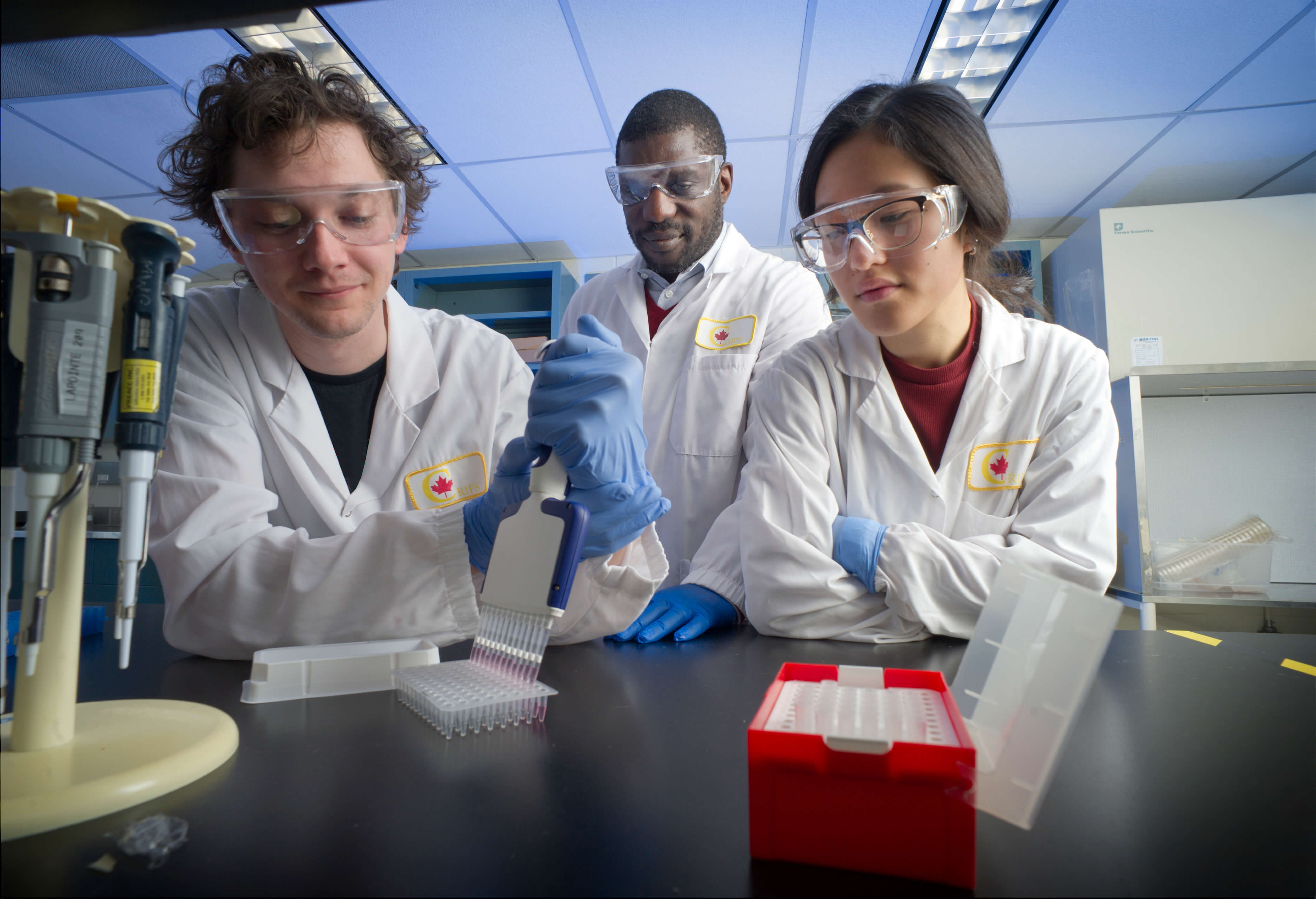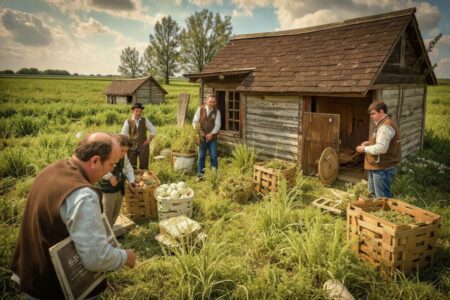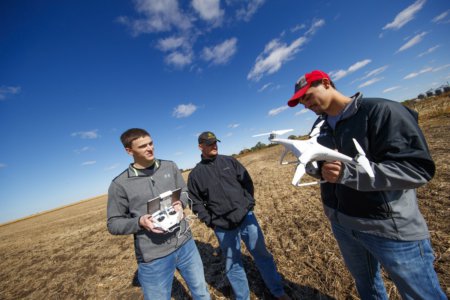
Agriculture has always played a critical role in society. As the backbone of any economy, the field offers an abundance of employment opportunities every year. Such prospects are only increasing — rapidly — much like our world’s population.
A career in this field is not only easy to build, but lucrative. The salaries of jobs in this field are high. Farm Managers earn an average yearly salary of US$66,478. Soil and Plant Scientists — who work on pest control analysing soil samples — earn an average of US$68,830 a year.
More importantly, working in agriculture is impactful. Tremendous strides in sustainability and productivity during the latter part of the 20th century now allow the world to produce 150% more food on only 13% more land.
The same progress is needed in 2022. At the COP26 climate conference in Glasgow, as many as 45 countries have pledged to transition to more sustainable farming, using more than US$4 billion in public sector investments to make agriculture more innovative and resilient to the effects of climate change.
With all of the above, qualified graduates in this field are set for a bright professional future that can make all the difference. If this is the path you seek, here are four of the best agricultural colleges that are known for their outstanding graduate degree programmes:
University of Guelph: Ontario Agricultural College
The Ontario Agricultural College (OAC) of the University of Guelph is nestled in an historic and beautiful campus in the small city of Guelph, less than an hour west of Toronto, Canada. Established in 1874, it’s the country’s oldest and largest Agriculture and Food faculty. Today, it is internationally renowned for its research, teaching and knowledge extension in the broad areas of food, agriculture, communities and the environment.

The Ontario Agricultural College’s Master of Dairy Technology Management focuses on the application of scientific, economic, and business management knowledge. Source: University of Guelph
OAC offers 15 master’s programmes, ranging from Plant Agriculture to Food Science. The MSc in Food Safety and Quality Assurance covers the fundamentals of food policy development, Canadian and international food law, applied aspects of total quality management, food safety management systems, risk analysis, and detection and epidemiology of foodborne pathogens. The Master of Dairy Technology Management focuses on the applications of scientific, economic, and business management knowledge as it applies to the dairy industry.
What sets these programmes apart is their emphasis on leadership opportunities and a hands-on approach. OAC aims to improve life by inspiring leaders, generating knowledge and creating innovative solutions for agriculture — its programmes reflect this goal. The university also offers many opportunities for students to become involved in their community and gain leadership experience.
At OAC, classes come to life through various Professional Skills Development, Social and Wellness Opportunities. The 3 Minute Thesis competition, for example, helps students build communication skills by presenting their research and its wider impact in three minutes or less. Many programmes also offer opportunities for travel in Canada and internationally via field schools. To check out the full list of graduate programmes at OAC, click here.
Iowa State University: College of Agriculture and Life Sciences
The College of Agriculture and Life Sciences (CALS) at Iowa State University is currently ranked in the top 4% of agriculture and forestry programmes worldwide by QS World University Rankings.

CALS uniquely offers a Sustainable Agriculture programme that teaches the biological, social, and economic elements of sustainability. Source: Iowa State University/Facebook
It also hosts the nation’s largest career fair with a placement of 97% or higher for the past 23 years.
With over 30 graduate programmes available, you have the chance to not only make a difference in Iowa but on a larger, even global scale. One of their programmes, Sustainable Agriculture, is the only programme in the US to offer the MS and PhD degrees where you’ll study the biological, social, and economic elements of sustainability.
Then there’s Agricultural Engineering, which provides cutting-edge research opportunities with an emphasis on advanced machine engineering and more.
Here, support is always available for those who seek to become experts in their discipline, find their voice for advocacy, pursue entrepreneurism and emerge as a leader.
If this sounds like the future you envision for yourself, consider joining
Iowa State University. Find the full list of graduate programmes at CALS here.
Florida Agricultural and Mechanical University: College of Agriculture and Food Sciences
The Florida Agricultural and Mechanical University (FAMU), founded in 1887, is known as a historically Black university in Tallahassee, Florida. Ranked 202 in 2022’s edition of Best National Universities, FAMU has a reputation for providing high-quality and affordable education.

CAFS plays a vital role in offering research-based information and resources directly to Florida’s farmers, individuals, producers, communities and agri-businesses. Source: Florida Agricultural and Mechanical University/Facebook
The College of Agriculture and Food Sciences (CAFS) at FAMU plays a vital role in offering research-based information and resources directly to Florida’s farmers, individuals, producers, communities and agri-businesses. On campus, its low student-to-faculty ratio guarantees students personalised attention to reach their highest potential.
FAMU also has a Career and Professional Development Centre to connect talented students with meaningful employment, educational opportunities and partnerships with employers.
There are five graduate programmes to choose from at CAFS, which include the Agribusiness Programme, where you’ll learn about the principles of economics, business and management of the agricultural sector.
The academic programmes at CAFS equip you to tackle 21st century worldwide challenges relating to global food security and fight world hunger.
Over at the centres for Biological Control, Water Resources, Viticulture and Small Fruit Research, many significant breakthroughs take place.
These have helped strengthen the relationship with stakeholders, industry partners and small and limited resource farmers in Florida.
University of Wyoming: College of Agriculture and Natural Resources
Founded in 1886, the University of Wyoming is a nationally recognised land-grant research institution with an expert faculty, top-ranked academic programmes and world-class facilities. If you seek the smart solutions to today’s environmental issues, start with the university’s College of Agriculture and Natural Resources undergraduate and postgraduate programmes.

The College of Agriculture and Natural Resources equips students with the tools needed to tackle current environmental crises. Source: University of Wyoming/Facebook
Here, you’ll be immersed in UW’s proactive leadership in education and scholarship to cultivate healthy, sustainable systems for Wyoming’s agriculture, environment and natural resources, and rural communities. This is a place where you can put your knowledge into practice, as UW equips agricultural students with the tools they need to tackle current environmental crises.
The college is assisted by their interdisciplinary university-wide departments including the departments of Agricultural and Applied Economics; Agricultural Communications; Animal Science; Ecosystem Science and Management; Family and Consumer Sciences; Molecular Biology; Plant Sciences and Veterinary Sciences.
When the pandemic struck, the college adapted. “Campus certainly has a different feel compared to this time last year, but our faculty members and students are finding creative ways to adapt to what seems like a constantly evolving situation,” wrote John Ritten, Interim Associate Dean and Director of the Wyoming Agricultural Experiment Station, in the college’s magazine “Reflections.”
“While we are looking forward to putting this behind us, please know we are doing our part to keep the college moving forward while working to ensure the health and safety of our students and staff and faculty members.”
*Some of the institutions featured in this article are commercial partners of Study International










